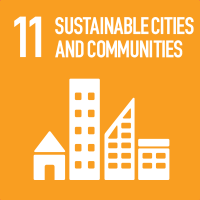Studying at the University of Verona
Here you can find information on the organisational aspects of the Programme, lecture timetables, learning activities and useful contact details for your time at the University, from enrolment to graduation.
Study Plan
This information is intended exclusively for students already enrolled in this course.If you are a new student interested in enrolling, you can find information about the course of study on the course page:
Laurea in Scienze delle attività motorie e sportive - Enrollment from 2025/2026The Study Plan includes all modules, teaching and learning activities that each student will need to undertake during their time at the University.
Please select your Study Plan based on your enrollment year.
1° Year
| Modules | Credits | TAF | SSD |
|---|
Biochemistry of exercise
Principles of sport management
Introduction to chinesiology and sport
2° Year activated in the A.Y. 2023/2024
| Modules | Credits | TAF | SSD |
|---|
Introduction to movement analysis and motor control
Sport and exercise psychology
Training Methodology
3° Year activated in the A.Y. 2024/2025
| Modules | Credits | TAF | SSD |
|---|
Preventive and adapted physical activity
Pharmacology and cardiology applied to physical activity
Diseases of the Locomotor Apparatus
Techniques and Teaching Methods for Individual and Team Sports
| Modules | Credits | TAF | SSD |
|---|
Biochemistry of exercise
Principles of sport management
Introduction to chinesiology and sport
| Modules | Credits | TAF | SSD |
|---|
Introduction to movement analysis and motor control
Sport and exercise psychology
Training Methodology
| Modules | Credits | TAF | SSD |
|---|
Preventive and adapted physical activity
Pharmacology and cardiology applied to physical activity
Diseases of the Locomotor Apparatus
Techniques and Teaching Methods for Individual and Team Sports
| Modules | Credits | TAF | SSD |
|---|
1 MODULE TO BE CHOSEN BETWEEN THE FOLLOWING1 MODULE TO BE CHOSEN BETWEEN THE FOLLOWINGLegend | Type of training activity (TTA)
TAF (Type of Educational Activity) All courses and activities are classified into different types of educational activities, indicated by a letter.
Sport sociology [Matricole dispari] (2023/2024)
Teaching code
4S02431
Teacher
Credits
6
Language
Italian
Scientific Disciplinary Sector (SSD)
SPS/07 - GENERAL SOCIOLOGY
Period
2° semestre SM dal Feb 26, 2024 al May 30, 2024.
Courses Single
Authorized with reserve
Learning objectives
Starting from a general overview of some of the main approaches and concepts used in sociology to understand the features and functions of society, the course will allow students to identify the social dimension of sport and physical activity by considering them both from internal and external observation points, namely as specific social phenomena and elements of society that are always related to other elements. Specific attention will be paid to the relationship between health and physical activity. This relationship, from the point of view of the sociology of health, recalls essential questions also in the sport sciences: individual wellness/wellness, body care, prevention of pathologies typical of post-modernity. At the end of the course, the student must: - know the basic concepts of sociology applied to sports science and the concept of health, from the sociological point of view; - be able to identify the social dimension of phenomena related to sport and physical activity and, in particular, analyse the relatioship among physical activity/body/health; - know how to assess the impact and social importance of phisical activity; - be able to use the concepts studied in an appropriate manner both in general terms and with special regard to physical activity.
Prerequisites and basic notions
No specific prerequisite is required.
Program
Defining sport and physical activity in the digital age.
The sociology of sport: development of the discipline and main theories.
The evolution of sport as a social phenomenon, from the elites to the masses.
Sport in the development of individual and collective identities.
Sport and health: individual well-being and public health, but also the main deviances (doping, eating disorders, overtraining, etc.).
The central role of physical activity in an aging society.
Sport and society in the international landscape.
Sport as a factor of social integration for migrants and refugees.
Sport and collective actors: businesses, associations, institutions, international relations.
Sport and ecology.
Bibliography
Didactic methods
The lessons will be held face-to-face on campus. Frontal teaching for the presentation of the various topics, constantly complemented by inclusive teaching methods in order to enhance the student’s dialectical ability and critical thinking skills (Socratic method). Analysis of case studies, best practices, scientific studies and strategic institutional documents related to the topics addressed by the course.
Learning assessment procedures
The exam is written in the form of multiple tests throughout the academic year. For those who do not take any of the written tests, the exam is oral in one go on the entire syllabus.
Evaluation criteria
The final grade is expressed out of thirty.
Exam language
Italiano




